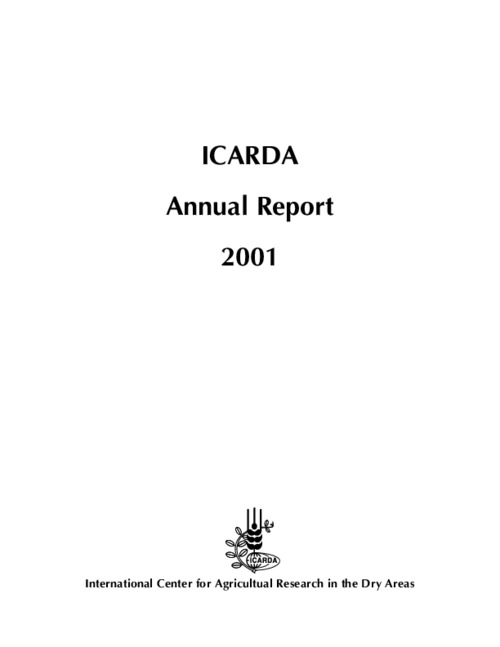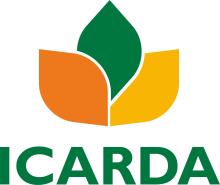Resource information
The world is witnessing a period in its history when the increasing socio-political upheavals are taking the lives of thousands, and destroying the natural wealth of our planet. Poverty and food insecurity are two key forces driving this destruction. These ongoing problems compound those already being posed by an increasing shortage of water, scarcity of productive land, an expanding population, and the threat of global warming.
ICARDA strongly believes that solutions to these problems can only be found through innovative partnerships. Working with its partners the Center can widen the scope of its research geared to reduce poverty, increase food production, and protect the natural resource base throughout the dry areas of the world. The year saw a major breakthrough in forging new partnerships.
For example, the war-torn and drought-hit Afghanistan urgently needs support to rebuild its agriculture. In 2001, ICARDA initiated a major international effort—The Future Harvest Consortium to Rebuild Agriculture in Afghanistan—to help the country achieve sustainable development of its agriculture and reduce poverty and hunger. The Consortium is drawing together partners and expertise from many organizations, including the CGIAR, UN agencies, U.S. universities, local and international NGOs, and USAID and other donors. The most immediate problem facing Afghan farmers is the lack of good quality seed, so the Consortium has developed a detailed plan to multiply and deliver quality seed of adapted varieties, and
to establish an efficient seed production system in the country. Needs assessments for medium- and longterm interventions have been started with full participation of the Ministry of Agriculture, Afghanistan.
Reversal of the trends in land degradation requires a holistic approach that focuses on three key components. First are technological interventions that address land, water and food security problems. Second is the active involvement of local communities employing a strategy that increases their knowledge and organizational capacity. With increased capacity to solve problems and to manage risk, communities can reverse land degradation, generate employment opportunities, improve their livelihoods, and become responsible stewards of the natural resources. Thirdly, appropriate incentives at the policy and institutional level are required to stimulate land users to adopt new technologies to improve their income and quality of life.


